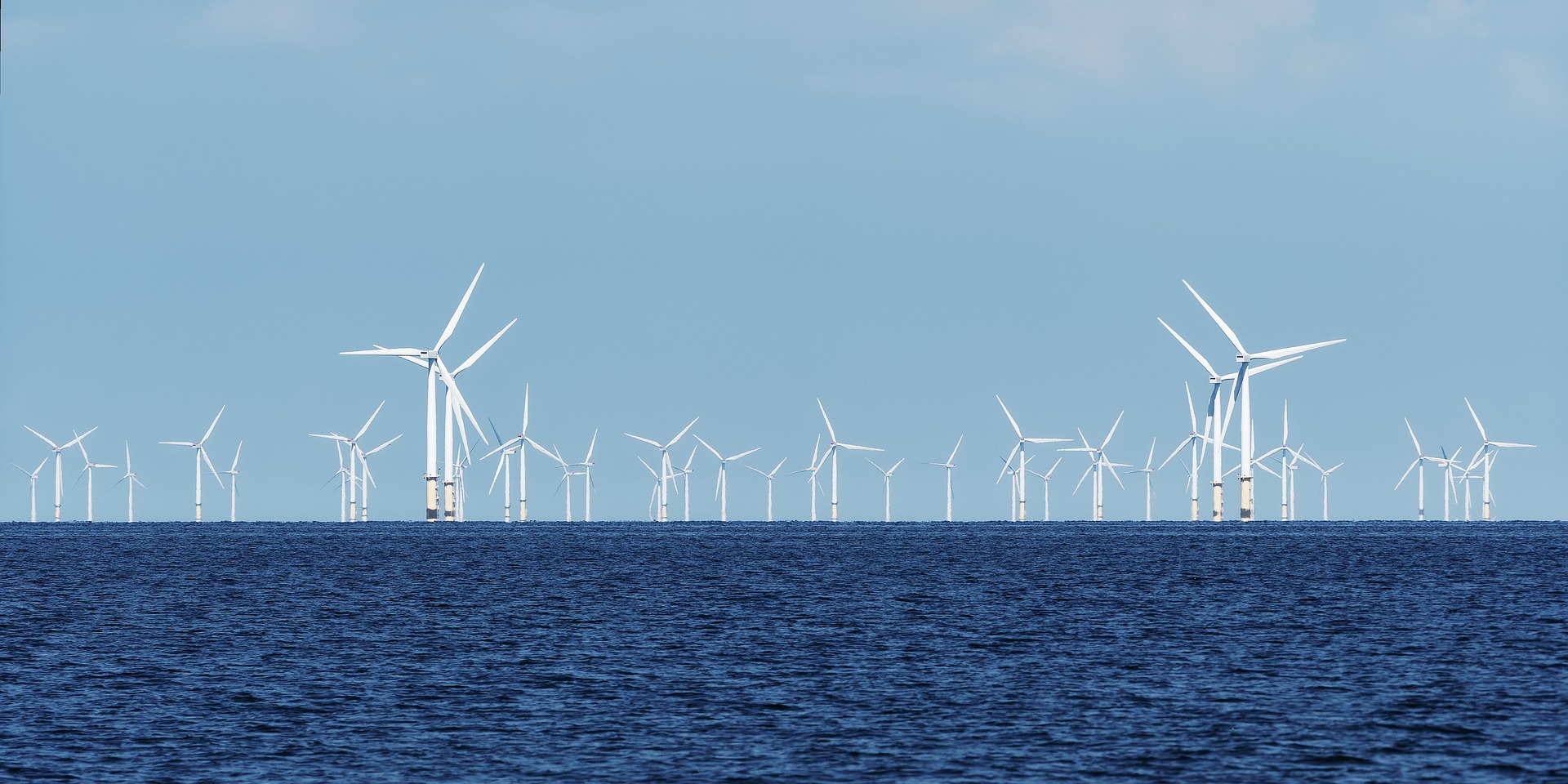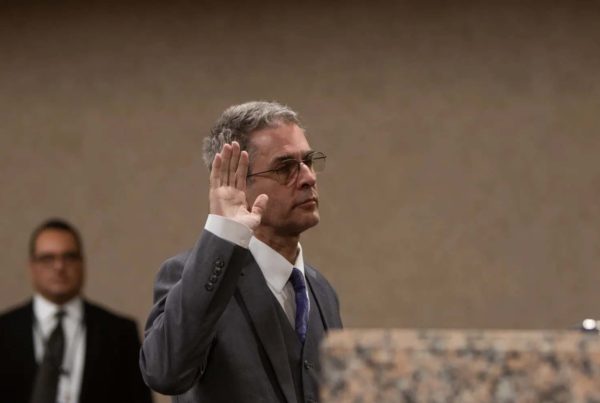The United States is one of the world’s leaders in wind power, but when it comes to offshore wind production, the U.S. lags behind countries like the United Kingdom, Germany, and China – all of which have invested in projects that place wind turbines out at sea. The momentum to ramp up efforts on this front has met some resistance.
Emily Atkin is editor-in-chief of the climate change newsletter Heated. She recently co-authored a piece about how interest groups are attempting to obstruct efforts to build more wind turbines. Listen to the story above or read the transcript below.
This transcript has been edited lightly for clarity:
Texas Standard: You recently co-reported a story about the Texas Public Policy Foundation (TPPF), an influential conservative think tank a lot of our listeners may have heard of in the past. The TPPF apparently has filed a lawsuit in partnership with a number of New England fisheries in order to stop these offshore wind developments. Tell us what this is all about.
Emily Atkin: So the Texas Public Policy Foundation has teamed up with the commercial fishing industry to target the Vineyard Wind Project, which, if completed – it’s currently under construction – would be the largest offshore wind farm in the U.S.
And where would that be exactly?
That’s in the New England area.
And the Texas Public Policy Foundation is in on this?
Yes. So the Texas Public Policy Foundation has, in the energy space, their goal is to promote fossil fuel development. And so a lot of times that does mean opposing renewable energy development, which is a competitor.
Clearly, they’re thinking about the ripple effects that could expand beyond this particular project involved in the lawsuit, I suppose.
So TPPF’s lawsuit targets this particular project, but the goal of the lawsuit is to pause all ongoing offshore wind construction in the United States. The lawsuit targets the federal “Smart from the Start” program, which essentially houses all offshore wind development, and that includes offshore wind projects in Texas.
What other effects could there be if the TPPF is successful here?
Well, ultimately delaying our transition to renewable energy delays our response to climate change, which endangers all Americans, but particularly Texans as many hurricanes in the area I think have shown. And offshore wind is particularly important for the United States and the world’s response to effectively tackling climate change because scientists tell us that we need a lot of renewable energy development and we don’t actually have enough land to house all of that. So offshore projects such as offshore wind are going to be really important towards that transition.
You know, I’ve heard people who are deeply involved in renewables say, you know, “the truth of the matter is there’s just no free lunch.” You’re always engaged in trade-offs when you’re looking for any sort of change in our energy mix. And I’m curious, are there pros and cons here when it comes to offshore wind power, as you see it?
Of course. And actually, that’s why I thought that this lawsuit was so interesting in the first place, because TPPF has historically argued against the Endangered Species Act – against many environmental laws – because of how they affect the oil industry, which is a high-polluting industry. But for this case, they use those very same laws to argue that offshore wind development harms endangered species and harms the environment. The truth is that all energy development harms the environment in some way. That doesn’t necessarily mean that we stop having any energy. It just means that we take steps to mitigate those environmental impacts and figure out, you know, what are the trade offs that we want to have?
Well, what’s the next step? What is the timeline here?
Well, as you know, lawsuits take a long time to move through courts. It appears that the goal of this lawsuit is hopefully to get to the Supreme Court and have the Supreme Court invalidate this particular statute that allows offshore wind development. My co-reporter, Michael Thomas from the Distilled Newsletter, and I spoke to some legal experts who said that this doesn’t look like a particularly strong lawsuit and that its effects may be intended to be indirect, like affecting public debate and just rhetoric in general – spreading the idea that offshore wind is environmentally harmful and shouldn’t be pursued. That’s just as worthy a goal as getting it invalidated.















